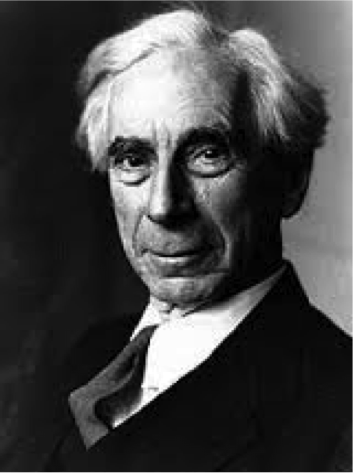WHAT WE’VE LEARNED SO FAR: GOD EXISTS
In previous blogs we used an approach called “natural theology.” We stated that we would not use scripture as justification for the existence of God. Using natural theology’s five arguments for the existence of God we can provide five excellent reasons to believe in God:
1. God is the best explanation for the existence of objective moral values and duties.
2. God is the best explanation for the beginning of the universe.
3. God is the best explanation for why the universe is so finely-tuned to sustain life.
4. God is the best explanation why anything at all exists rather than nothing.
5. The very possibility that God exists indicates to us that he actually does exist.
We also provided responses for two major objections that atheism commonly raises:
1. Suffering: If a loving and powerful God exists, why is there suffering?
2. Origin: Is the question of God’s origin an effective argument against his existence?
We now want to address a third objection that atheists raise concerning “God’s hiddenness.”
Keep in mind that agnosticism merely says “we don’t know,” but atheism makes the claim “we know that God does not exist.” As they explain why this alleged “hiddenness” is a defeater of the arguments we’ve presented, we would invite atheists to tell us how they possess such certainty regarding God’s inexistence.
In raising their objection about God’s hiddenness, it is atheism’s turn to bear the burden of proof and make their case that God’s hiddenness somehow proves, or at least makes it more probable, that he does not exist.
ATHEISM’S COMPLAINT ABOUT “HIDDENNESS”

Not Enough Evidence
Someone once asked the world-renowned atheist philosopher Bertrand Russell, “If you found yourself standing before God on judgment day and God asked why you didn’t believe in him, what would you say?” Russell answered, “I would say, ‘Not enough evidence, God! Not enough evidence!” So Russell tells us that he would hold God accountable for not making his existence more apparent.
Like their mentor Bertrand Russell, many atheists still rely on their favorite slogan that is intended to put the burden of proof back on Christians: “not enough evidence.”
It’s hard to support that idea that there’s “not enough evidence” in light of the five arguments we’ve presented on this website. So some atheists will then find refuge in the idea of “God’s hiddenness,” which is really just Russell’s argument repackaged.
Ignoring The Evidence
At the point that they reject natural theology’s five arguments, we have to ask ourselves if the atheist friends we’re talking to are actually listening. Are they engaged, or are they intellectually lazy and simply dismissive of the case Christians have made because they just don’t care? If so, we need to ask, “Specifically which premise in our arguments do you reject and why?”
Those who weren’t listening will often say, “Oh, I reject all of them!” In response to that, we normally begin to ask about their opinion of specific premises with questions like:
• Do you mean that you reject premise 3 of the contingency argument that says “The universe exists”?
• What about premise 1 of the fine-tuning argument that says,“The fine-tuning of the universe is due to either physical necessity, chance or design”? Do you disagree with that as well?
It doesn’t seem reasonable to deny basic facts like these. Anyone who does probably isn’t listening or engaged in the conversation. However, for those who sincerely still believe that God is “hidden” and that there’s not enough evidence, please read the rest of this blog.
So it’s important to understand the difference between those who sincerely believe there’s “not enough evidence” and those who are “ignoring the evidence.”
CHRISTIANITY’S RESPONSE TO THE CLAIM OF “NOT ENOUGH EVIDENCE”
As we’ve suggested in other blogs, God wishes to maintain our agency to:
• freely choose whether we will believe in him, and
• freely choose if we will submit to his will.
The question we have to ask is this: “At what point in making his existence more obvious does that revelation of God begin to encroach on human free will and become more coercive and not merely informative?”
God doesn’t force himself on us. If someone is too indifferent to even investigate, God may coax but he does not force. However, there is sufficient evidence for those with an open mind and a willingness to seek him.

French mathematician and philosopher Blaise Pascal, who was converted to Christianity at the age of 31, said this about God’s revealing himself to man:
“Willing to appear openly to those who seek him with all their heart, and to be hidden from those who flee from him with all their heart, God so regulates the knowledge of himself that he has given indications of himself which are visible to those who seek him and not to those who do not seek him. There is enough light for those to see who only desire to see, and enough obscurity for those who have a contrary disposition.”
In simple terms, Pascal is saying that God makes his existence obvious enough to those who seek him but obscure enough to those who don’t want to hear the evidence. If this is true, then it begins with our will and our desire.

Oxford philosopher Richard Swinburne says that the “hiddenness” of God has to do with leaving intact our own ability to choose freely between good and evil:
“God’s failure to make himself known is surely, an objector will say, in view of God’s supposed perfect goodness, evidence against his existence . . . Now, if I acquire a deep awareness of the presence of God, I will then become deeply aware that, if I do bad, and especially wrong, actions, the all-good creator will strongly disapprove . . . We will be in the situation of the child in the nursery who knows that mother is looking in at the door, and for whom, in view of the child’s desire for mother’s approval, the temptation to wrongdoing is simply overborne. We need ‘epistemic distance’ from God in order to have a free choice between good and evil. . . But the more uncertainty there is about the existence of God, the more it is possible for us to be naturally good people who still have a free choice between right and wrong.”
Richard Swinburne, The Existence of God (Oxford, England: Oxford University Press, 2014), 267-270.
Christianity would say there’s absolutely no basis to assume that if God existed he would make that fact more apparent than he already has by proofs such as:
1. The origin of the universe, out of nothing, a finite time ago.
2. The incredibly improbable fine-tuning of the universe to sustain life.
3. The existence of a realm of objective moral values and duties.
4. The resurrection of Jesus of Nazareth from the dead.
5. The experience in our immediate personal lives of God’s presence (see blog on general revelation).

In light of such evidence, it’s hard to understand how a person could actually claim that God is “hidden.” Philosopher Michael Scriven says that we are justified in claiming that something does not exist ONLY IF there is absolutely NO EVIDENCE to support such an idea. Scriven says that we should at most be agnostic in such cases.
So the hiddenness of God considered alone doesn’t seem to make the case for God’s inexistence. Actually, with all this evidence, God is not so “hidden” after all.
HIDDENNESS BASED ON UNBELIEF
Instead of simply pointing to the “hiddenness” of God, there are atheists who take a more radical position to claim that “God would never stay so hidden as to allow unbelief to be so widespread in the world as it presently is.” Since “unbelief in God” is so pervasive, that indicates to them that God does not exist.
We need to point out that, according to a 2014 Pew Research poll, there were 3.1% atheists and 4.0% agnostics in the United States. So in this country, “unbelief” is not exactly “widespread.” Now, as to its growth, that same poll said that in 2007 atheists were 1.6% of the United States and agnostics were 2.4%. So there has been a fairly significant increase in those seven years from 2007 to 2014.
Assuming that this idea is correct about the impact of God’s “hiddenness” on “unbelief,” God seems to have kept the spread of “unbelief” down to a fairly low percentage, at least in the United States. So there doesn’t appear to be a lot of “unbelief” in this country, but it appears that there was an uptick in unbelievers.
It’s interesting that, in an atheistic country like China where religious worship has been outlawed and hotly persecuted, they will soon have 100 million Christians.
But for the sake of argument, let’s just assume that atheism is much more prevalent in other countries than belief in God is. With that in mind let’s examine this argument that suggests God could make his existence more apparent and thus end unbelief in the world.

Perhaps the most well-known proponent of this argument for “hiddenness based on unbelief” is Canadian atheist philosopher J.L. Schellenberg who wrote Divine Hiddenness and Human Reason (Cornell University Press, 1993).
The argument might be stated like this:
1. If there is a God, he is perfectly loving.
2. If a perfectly loving God exists, reasonable non-belief does not occur.
3. Reasonable non-belief does occur.
4. Therefore, no perfectly loving God exists.
Conclusion: Therefore, there is no God.
To us, premise 2 is a far-reaching assumption. How can we claim to know the mind of a perfectly-loving God and what degree of unbelief he would allow in the world?
Some people who suggest this idea might not be satisfied with natural theology’s five arguments for the existence of God. They might say that’s not enough evidence because God would not allow so much unbelief in the world. Again, this is a far-reaching assumption.
To elaborate further, atheists who use the “hiddenness based on unbelief” argument might say:
• “If God existed, he would actually take steps to prevent the world’s unbelief, making his existence so very apparent that everyone would believe in him.”
• “For example, God could have inscribed ‘made by God’ on every molecule in the universe – something we could see at a microscopic level. He could have put a neon cross in the sky with the words “Jesus saves.” There are any number of things he could do to prevent unbelief.”
• “It is God’s responsibility to make his existence known. So if God existed, there wouldn’t be any unbelief in the world because it would be so obvious that no one could deny it. If a loving God actually existed, there would be no unbelief.”
• “Since there is so much unbelief, we must conclude that there actually is no God.”
CHRISTIANS’ RESPONSE TO “HIDDENNESS BASED ON UNBELIEF”
Premise 2 in the above argument stated, “If a perfectly loving God exists, reasonable non-belief does not occur.” However, this is not true!
Reasonable Non-belief?
In examining human experience, it seems obvious that there could potentially be moments of doubt or unbelief in anyone’s life. The five arguments of natural theology clearly indicate that God’s existence is more probable than not, but simultaneous with this “reasonable non-belief” actually can occur.
It’s possible that I might fail to understand ways in which the creation around me (i.e., the fine-tuning argument) and the conscience within me (i.e., the moral argument) speak volumes about the existence of a perfectly loving, personal creator. We each can sometimes miss the evidence that God leaves in our path. For example:
• Perhaps, no one ever drew our attention to that evidence or taught us about a “perfectly loving God” who cares for his creation and whose benevolence overflows in ways that we are simply oblivious to.
• When we fail to recognize the evidence that God is there and fail to exercise faith in him, it can frequently be due to the fact that there is a cognitive dysfunction in us due to pain we’ve experienced or error in the way we’ve been taught that distorts our thinking.
Recognizing God’s Existence vs. Entering Into a Relationship with Him

Regarding this “hiddenness based on unbelief” argument, Christian philosopher Paul Moser has said that God isn’t really as interested in proving to people that he exists as some might think. Moser says that God is actually more interested in developing a deep and lasting personal relationship with each person who has a desire to know him.
In James chapter 2, verse 9, the apostle James wrote that there are such things as “demons” and that these beings believe God exists. But this passage also tells us that they tremble at God’s name. Perhaps this is because they have rejected the idea of submitting to God’s will and having a relationship with him. So even such beings believe that God exists, but they have freely chosen to reject him.
Here is the main point: If God arose from the alleged fog of obscurity and made himself more apparent to us than he is now, there is absolutely no evidence that this would ignite a dramatic change in humanity in which every person on earth would recognize his deity and submit to his will. Such an overt action might cause some to recognize that he exists, but that would not necessarily bring everyone into a deeper communion with their creator, which according to Moser is what God actually desires.
A More Obvious God Might Undermine Free Will and Wouldn’t Necessarily End Unbelief
On this same point, there is a gospel in the Bible that was written by a physician named Luke. Christians believe that chapter 16 of that gospel conveys the story of a man who would not submit to God’s will in this life and ultimately ended up in an afterlife of torment borne of regret. The man pleads with God to go back and tell his five brothers who are still alive not to do what he did in rejecting God (i.e., asking God to make himself more apparent and dispel his five brothers’ unbelief). God tells the man that if his five brothers wouldn’t listen to the evidence provided by the five books of Moses and the prophets that are found in the Bible, those five brothers would not be persuaded even if they saw someone rise from the dead!
In the Old Testament we see many amazing miracles that were poured out upon the nation of Israel as they were delivered from slavery in Egypt and kept alive in the desert for 40 years (e.g., plagues to deliver them from slavery, parting the Red Sea to escape an army, fire and smoke that went before them, water from a rock, manna from heaven, etc.). Even if we view these acts as merely metaphorical, the essence of the story being conveyed is that, time after time, God moved in miraculous ways that the entire nation of Israel could witness, but just as many times they nevertheless continued to reject God and would not submit to his will. According to the Old Testament narrative, these miracles did not result in changed hearts or an end to “unbelief.”
So if God put his majesty on display for the world to see, there is no evidence that the everyone would necessarily bow down in submission before him. Even if God stamped “made by God” on every molecule in the universe or placed a neon cross in the sky, it might convince a few people that God exists, but it wouldn’t necessarily change peoples’ hearts.
You see, even if God brought every one of us to a point of absolute certainty that he exists, there would still be an entirely separate decision that every single person would need to make: “Are we going to trust in him as Lord of our lives, submit to his will and enter into that loving relationship that he desires to have with all who will seek him?”
Remember that premise 2 in the “hiddenness based on unbelief” argument stated, “If a perfectly loving God exists, reasonable non-belief does not occur.” However, this is merely an assumption on certain atheists’ part, and it’s actually not true that humanity would collapse in submission before God or believe in his existence because:
• God’s main interest is not to convince us that he exists; God’s highest priority is to have that personal relationship with his creatures that we talked about earlier.
• Any coercive act on God’s part (i.e., something even more powerful than the miracles mentioned in the Old Testament) could undermine humanity’s ability to freely choose whether they would follow or reject him.
In other words, some degree of what Oxford philosopher Richard Swinburne called “epistemic distance” must be maintained so that our choices are truly free (see the above quote by Swinburne). As the prophet Isaiah stated: “Truly you are a God who hides himself.” (Isaiah 45:15)
WHAT IS “SUFFICIENT EVIDENCE” FOR THE EXISTENCE OF GOD?
We could try to state a general principle that we will not believe anything unless we can see it, but it is difficult to consistently demand that level of evidence in every area of our lives.

Science philosopher David Berlinski is a critic of the militant atheism that has recently arisen in the scientific community. He points out how difficult it is to impose such a standard of evidence. Berlinski gives an example of “neutrinos,” which are subatomic particles that no one can see, yet our belief in them is resolute. So to impose a standard of evidence that “I must see it to believe it” is very difficult. Such general principles, when universally applied, frequently collapse of their own logical weight (see the note on Verificationism at the bottom of this blog).
Berlinski compares our faith in God to our faith in a subatomic particle called a “neutrino” which no one has ever seen:
“The concept of sufficient evidence is infinitely elastic . . . When a general principle is advanced, it collapses quickly into absurdity. Thus [scientific atheist] Sam Harris argues that ‘to believe that God exists is to believe that I stand in some relation to his existence such that his existence is itself the reason for my belief.’ This sounds very much as if belief in God could only be justified if God were to call attention conspicuously to Himself, say by a dramatic waggling of the divine fingers. If this is so, then by parity of reasoning again, one might argue that to believe that neutrinos have mass is to believe that I stand in some relationship to their mass such that their mass is itself the reason for my belief. Just how are those neutrinos waggling their fingers? A neutrino by itself cannot function as a reason for my belief. It is a subatomic particle, for heaven’s sake. What I believe is a proposition, and so an abstract entity — that neutrinos have mass. . . . I have, after all, never seen a neutrino: not one of them has ever gotten me to believe in it. The neutrino, together with almost everything else, lies at the end of an immense inferential trail, a complicated set of judgments.”
David Berlinski, The Devil’s Delusion: Atheism and It’s Scientific Pretensions, (New York, Basic Books, 2009), 48-49.
When we consider the concept of “sufficient evidence,” most of us have never seen neutrinos, but we read the scientific evidence and trust the judgment of scientists. That is “faith” — evidence-based faith in the experts, in their integrity, in their reasoning. We’ve never seen a neutrino, but we believe in them because of “an immense inferential trail, a complicated set of judgments.”
Now consider the idea of “sufficient evidence” in relation to God. When we consider scientific evidence such as the fine-tuning of the universe, we trust the opinions of physicists who have studied that subject and the logical argument that fine-tuning is due to design. That is “faith,” evidence-based faith.
When Einstein, de Sitter, Friedmann and Hubble told us that the universe had a beginning, we trusted their research and their integrity. That is faith, evidence-based faith. God doesn’t have to “waggle his fingers at us” and we just as resolutely believe in his existence because of “an immense inferential trail, a complicated set of judgments.”
CONCLUSION
We started this blog by saying that atheists must carry the burden of proof to establish that what they call “God’s hiddenness” clearly demonstrates that God does not exist.
There’s absolutely no reason to think that if God made himself manifest in a more obvious manner that it would somehow end unbelief. Certain atheists have made this up out of whole cloth.
Even though Christians’ have no burden of proof in this matter, we’ve given you our arguments against premise 2, and unless all four premises can prevail, the argument collapses.
In light of this, we don’t think there’s an adequate reason to think that premise 2 is correct. Once again, premise 2 says, “If a perfectly loving God exists, reasonable non-belief does not occur.”
For this reason, the “hiddenness from unbelief” argument doesn’t appear to make a compelling case.
_______________________________________________________________________________________
VERIFICATIONISM: MUST I SEE IT TO BELIEVE IT?

In 1748, Scottish atheist philosopher David Hume, an early proponent of book-burning said:
“If we take in our hand any volume, of divinity or school metaphysics, for instance; let us ask,
• Does it contain any abstract reasoning concerning quantity or number? No.
• Does it contain any experimental reasoning concerning matters of fact or existence? No.
Commit it then to the flames: for it can contain nothing but sophistry and illusion.”
David Hume, An Inquiry Concerning Human Understanding, ed. by Tom L. Beauchamp (Oxford: Oxford University Press, 2000) 123.
In this quote, Hume was saying that unless something is:
• a “self-evident truth” like 2 + 2 = 4, or
• came from a direct experience with the facts (i.e., empirical observation),
any assertion should be considered meaningless and discarded as untrue.

Closely related to atheists’ idea that they must see more overt actions from God in order to believe that he exists is a school of thought called “verificationism” or “logical positivism” that was initiated by British philosopher A.J. Ayer. Two centuries after Hume, Ayer turned these two conditions by David Hume (self-evident truth and direct experience with facts) into what Ayer called the “principle of empirical verifiability” or just “verification principle,” which dominated the field of philosophy until the 1960s.
Another idea developed by Ayer was the “falsification principle” which said that a statement was also meaningless if it was impossible to be tested and proven false: “What is unfalsifiable is unscientific.” For example, it would be impossible to prove that unicorns never roamed the earth (i.e., unfalsifiable, so an unscientific claim). But if you tell me that you have a unicorn in your garage, I could look in your garage (i.e. falsifiable, can be verified).
However, in the 1960s, verificationists ran into two big problems that caused logical positivism to fall into disfavor:
1. If they applied their verification requirement to all areas of life, it would consign vast swathes of scientific knowledge to the trash heap of “meaninglessness,” very much like Hume did to science in the 1700s.
2. The “verification” principle and “falsification” principle were themselves NOT empirically verifiable or falsifiable!!
Because we could never do enough research to prove it, these two principles themselves are impossible to verify or falsify. So must I see it to believe it? Is every assertion false unless it is true by definition or empirically verifiable? No! There certainly is information that is capable of being verified or falsified, but Hume’s two facts are not the only reliable or meaningful information available to us.
Verificationism collapsed in the 1960s and has been abandoned. There are still remnants of this view among students who learned this in college or very old philosophy instructors who taught it back in 1960s. However, verificationism or logical positivism can no longer be supported.
So how does that relate to the subject of God’s hiddenness? We should never allow anyone to bring a verificationist viewpoint into any discussion of God’s alleged “hiddenness” without strongly challenging it! This perspective simply cannot be logically sustained.

